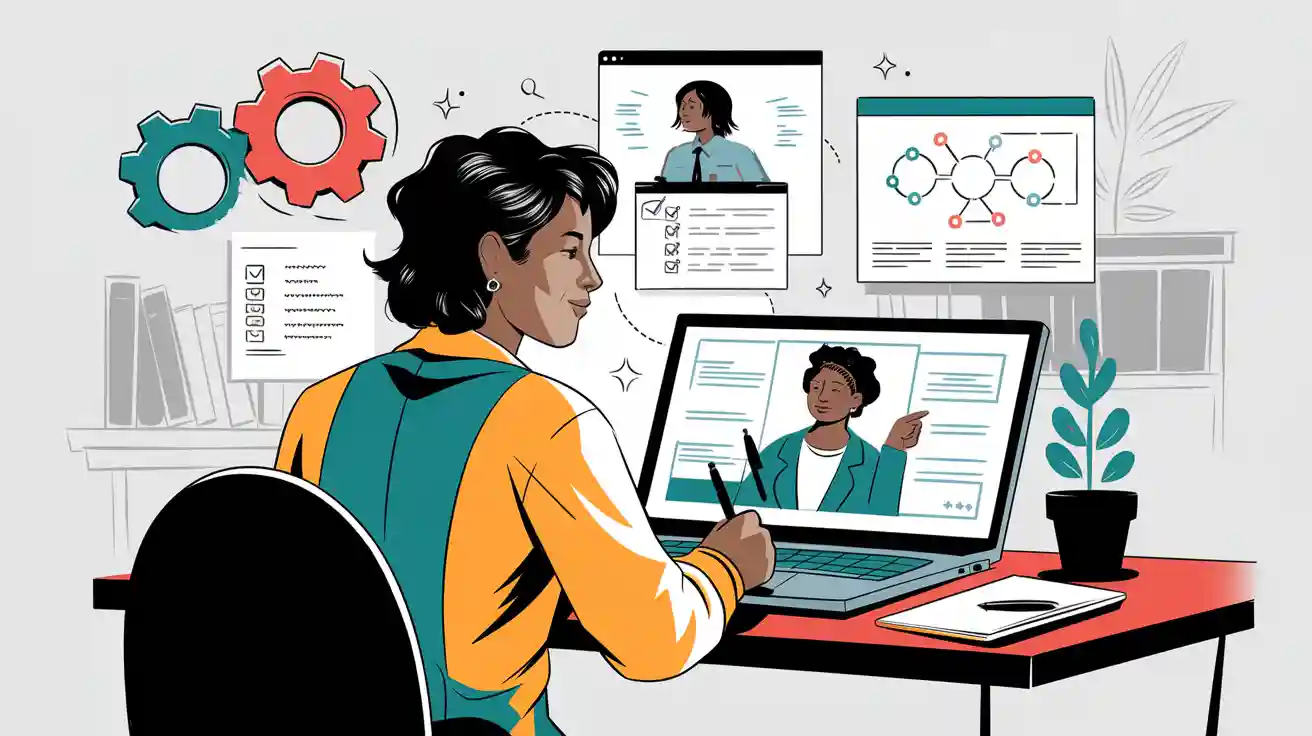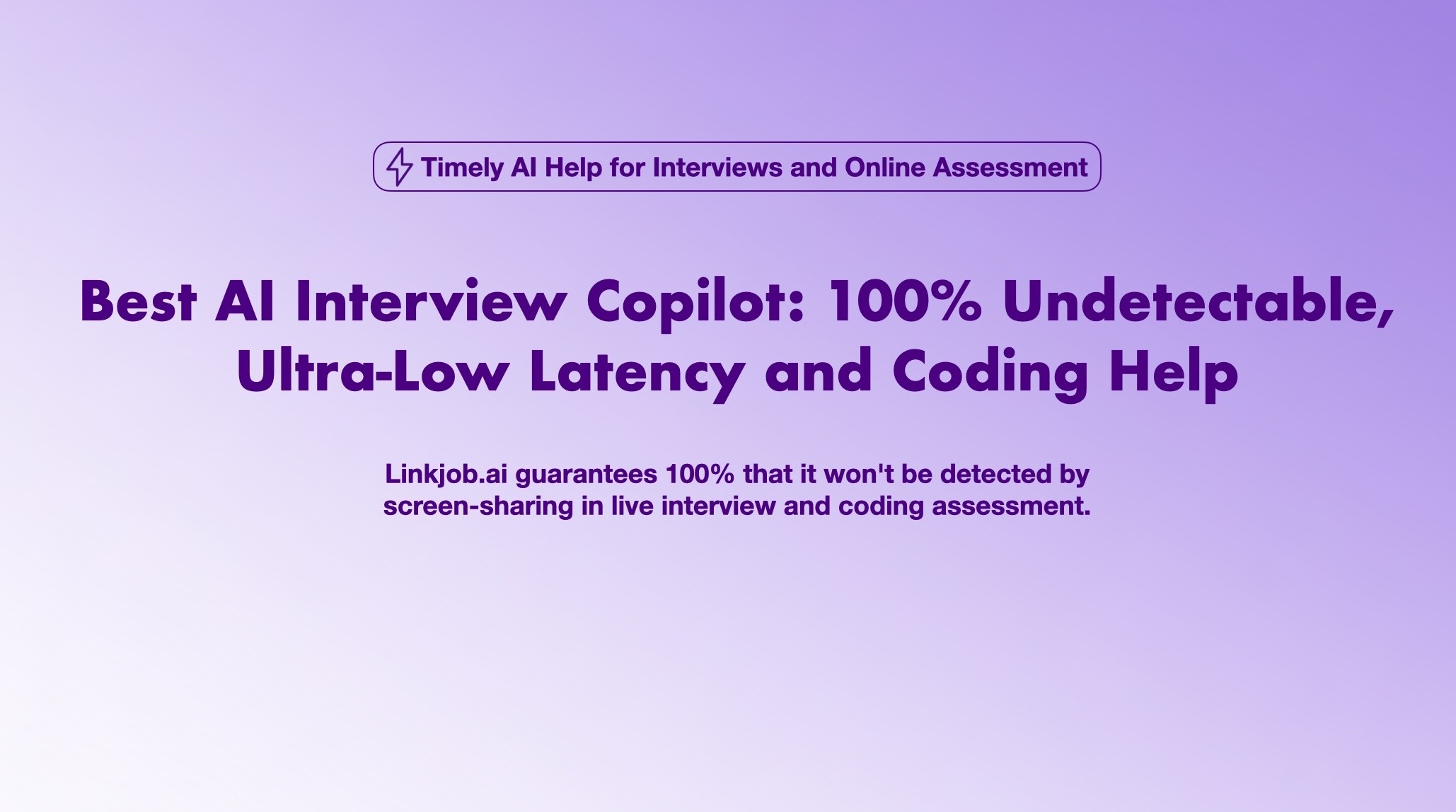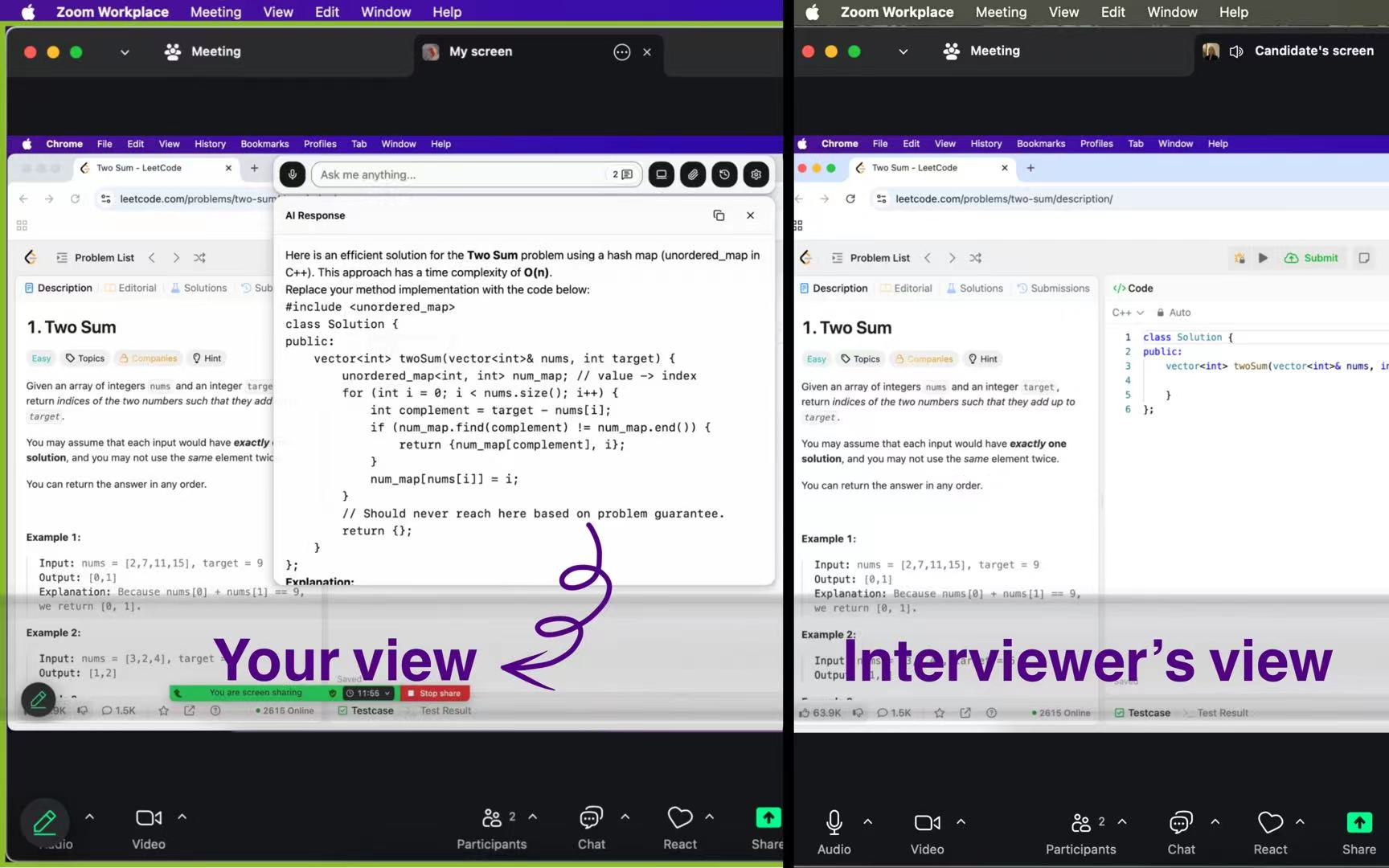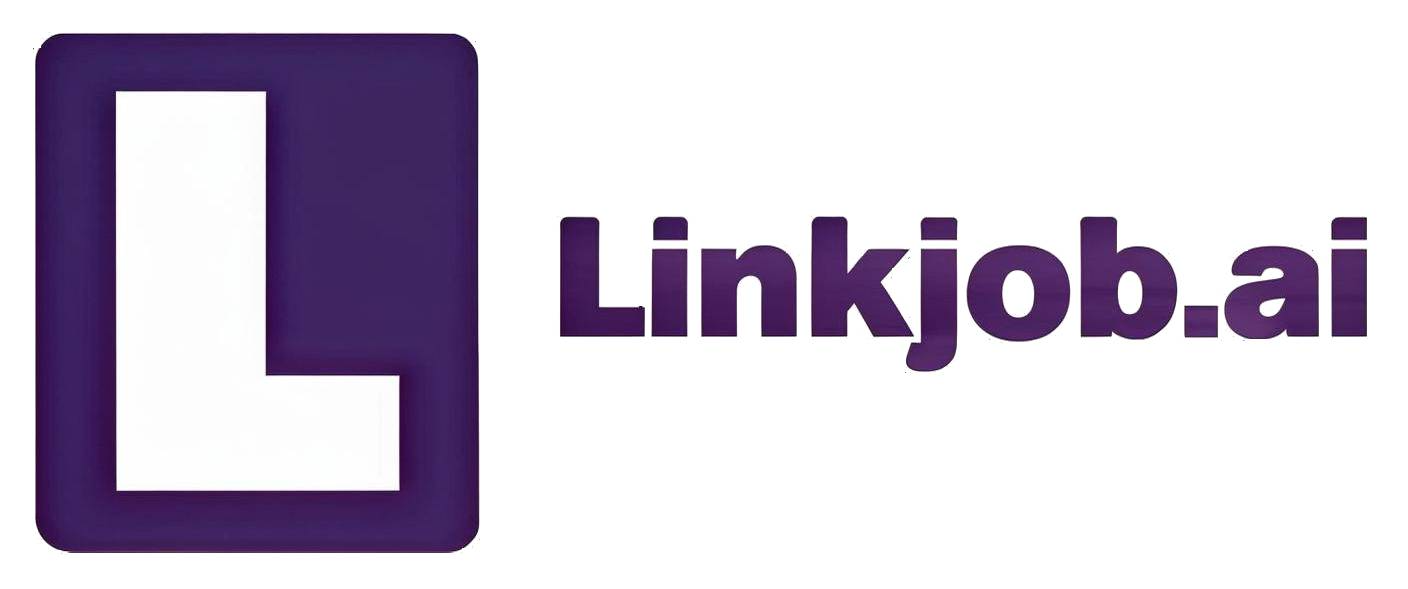My Real Zapier Interview Experience Sharing

I recently went through the zapier interview,the process had several stages, including a recruiter call, skills assessment, and final interviews. The following is an overview of my interview experiences.
I have to say, Linkjob.ai is really incredibly useful. During the interview process, it's completely invisible—even if the interviewer requires screen sharing, the other party can't see at all that I'm using this AI Interview tool.
Company Background: Zapier is a company that supports fully remote work (implemented many years ago).
Application Method: Apply through online submission (online application), and HR will proactively contact you to start the interview process.
Overall Impression: No technical onsite interview; the entire process leans towards remote assessment.
Interview Process (Organized in Order):
First Round: Take-Home Project Delivery Method: Released using Zapier's workflow automation tool.
Startup Process: Fill out a Google Form to indicate the start of the test, and the project information will be automatically posted to a GitHub private repo (private repository).
Submission Method: Submit answers via Pull Request (PR), with the repo visible only to you and the company.
Project Specific Content: You are given a bunch of data that needs to be stored in Memcache.
Requirements: When reading the data, verify that it is consistent with what was written (no loss).
Notes: Consider Memcache's key length restrictions.
Second Round: Virtual OA (Onsite Assessment) - System Design Discussion Format: Virtual discussion with a Senior Engineer.
Topic: System design scenario - Provide an API to users and charge based on the number of times users use the API.
Key Focus Areas: API design (API design).Scalability (scalability).Billing function implementation (billing implementation).
Subsequent Rounds: Culture Fit Interview Format: Chat with Product Manager (PM) and Engineering Manager (Eng Manager).
Linkjob.ai really helped a lot. Their AI interview assistant can provide answers to questions in real time, and it's completely invisible during the interview, so I highly recommend it.
Key Takeaways
Prepare thoroughly by reviewing the job description and practicing common interview questions using the STAR method.
Showcase your authentic self during interviews. Zapier values honesty and real-world experiences over just technical skills.
Engage with interviewers by building a connection. Use small talk and active listening to create a comfortable atmosphere.
Focus on problem-solving and critical thinking. Use clear examples from your past to demonstrate your skills and adaptability.
Be proactive in asking questions about the team and remote work culture. This shows your interest and helps you assess if Zapier is the right fit for you.

Zapier Interview Process
Application Review
Zapier’s process moves faster than some other remote-first companies, which often take longer to review applications. I noticed that Zapier values asynchronous communication and remote-readiness right from the start.
Here’s a quick look at the main stages of the process:
Stage Number | Stage Description |
|---|---|
1 | Applying: Showcase your skills and experience in a quick application. |
2 | Application review: A recruiter reviews every application. |
3 | Recruiter interview: Chat with a recruiter about career goals. |
4 | Hiring manager interview: Discuss skills and experiences with the hiring manager. |
5 | Skills assessment and interview: Complete a take-home assignment and Zoom interview. |
6 | Final interview: Meet with an executive leader. |
7 | Final decision: Evaluate candidates against rubrics. |
8 | References and background check: Conduct reference and background checks. |
9 | Offer: Extend offers to qualified candidates. |
Recruiter Interview
The recruiter interview felt more like a friendly conversation than a formal test. The recruiter asked about my background, skills, and experiences. We talked about my career goals and what I hoped to achieve. I appreciated that they wanted to know about my personal successes and how my colleagues described me.
Here are some topics we covered:
My background and work experience
Compensation range and benefits
Zapier’s mission and culture
My proudest career moments
I noticed that Zapier cares a lot about values alignment. The recruiter wanted to see if I fit with their culture and remote-first mindset. I felt comfortable sharing my story and asking questions about the company.
Skills Assessment
The skills assessment was the most challenging part of the zapier interview. I received a take-home assignment that tested my problem-solving abilities. For engineering roles, Zapier includes a coding challenge that simulates real-world tasks. They want to see how you approach problems and the quality of your work.
Zapier also evaluates AI fluency during this stage. They use four levels to measure how well you use AI tools:
Proficiency Level | Description | Assessment Methods |
|---|---|---|
Unacceptable | Resistant to AI tools and skeptical of their value. | Screenings, async exercises, live interviews |
Capable | Using the most popular tools; likely under 3 months of hands-on experience. | Screenings, async exercises, live interviews |
Adoptive | Embedding AI in personal workflows; tuning prompts, chaining models, and automating tasks. | Screenings, async exercises, live interviews |
Transformative | Uses AI to rethink strategy and deliver user-facing value. | Screenings, async exercises, live interviews |

During my assessment, I answered questions like:
How is AI changing how you plan or execute campaigns?
Can you share an example of how you use AI in your daily work?
How is AI impacting SaaS?
Zapier uses a rubric to evaluate your performance. They want to see not just technical skills but also how you think and adapt to new tools.
Final Interviews
The final interviews felt intense. I met with an executive leader and discussed my experiences in more depth. The questions focused on how I solve problems, work with others, and align with Zapier’s values.
Zapier’s process stands out because it moves quickly and values real-world thinking. Other companies, like Doist and Hotjar, take a slower approach and may include paid trial projects. Zapier prefers to assess candidates through behavioral questions and skills tests, making the process efficient but thorough.
Tip: Be yourself and share real examples from your work. Zapier values honesty and practical experience.
Common Questions
Behavioral
During my zapier interview, I noticed that behavioral questions came up often. The interviewer wanted to know how I handled challenges and worked with others. Here are some questions I faced:
What was your objective at the time?
What steps did you take to overcome the obstacle?
Were you successful in overcoming it? What did you learn?
Give an example of a time you had to persuade someone to see things your way.
Describe a challenging project you worked on.
Tell me about a time when you showed initiative and took on responsibilities beyond your job.
Describe a situation where you had to work under minimal supervision.
Give an example of a time when you led a successful project or task from start to finish.
Technical
Technical questions tested my problem-solving skills and knowledge. The interviewer asked me to explain how I would use certain tools or solve specific problems. I tried to show how I approached real-world tasks, especially those involving automation or AI. I also shared examples from my past work to make my answers more convincing.
Scenario-Based
Scenario-based questions felt like mini role-plays. The interviewer gave me a situation and asked how I would respond. Here are some examples:
Question | Skill Tested |
|---|---|
What would you do if a customer misused our product to gain profits in an unethical way? | Ethical decision-making |
What would you do if two of your teammates got into a conflict? | Conflict resolution |
Have you ever gone above and beyond for a customer? | Customer focus |
How would you deal with a customer who is wrong and insists on something? | Conflict resolution |
Preparation Tips
Skills Focus
When I prepared for my zapier interview, I started by reviewing the job description Practicing with a friend helped me sound more natural.
Here’s a table of technical skills that Zapier values:
Technical Skills | Description |
|---|---|
JavaScript/TypeScript | Proficiency required |
HTML/CSS | Proficiency required |
React | Experience required |
Next.js | Experience required |
Python/Node.js | Backend experience required |
API design | Understanding required |
Testing frameworks | Knowledge of Jest, Vitest, Playwright required |
AI development tools | Experience with GitHub Copilot, ChatGPT, etc. |

Engaging with Interviewers
Building a connection during a remote interview can feel tricky. I always checked my tech setup and made sure my background looked professional. I started with a bit of small talk or shared something about my workspace to break the ice. This made the conversation feel more relaxed.
Tip: Informal chats at the start can help everyone feel more comfortable.
Avoiding Mistakes
I learned that many candidates make simple mistakes during the zapier interview process. Some do not understand the hiring steps or forget to test their tech setup. Here’s how I avoided common pitfalls:
Tested my internet and camera before the call.
Practiced with Zoom and Google Meet.
Customized my resume for remote work skills.
Researched Zapier’s remote culture and time zone policies.
Prepared a cover letter that showed my fit for remote roles.
FAQ
How did I prepare for the skills assessment?
I reviewed the job description and practiced with mock interviews. I used AI tools like Linkjobai to brainstorm answers. I also worked on coding challenges and reviewed my past projects to share real examples.
How can I show I’m a good fit for remote work?
I share stories about working independently and communicating clearly online. I mention tools I use like Slack. I talk about how I stay organized and manage my time without direct supervision.
What if I don’t know the answer to a technical question?
This Linkjob.ai really helped a lot. Their AI interview assistant can provide answers to questions in real time, and it's completely invisible during the interview, so I highly recommend it.
Can I ask questions during the interview?
Absolutely! I always ask about the team, remote culture, or growth opportunities. This shows my interest and helps me decide if Zapier fits my goals.
See Also
Navigating My Figma Interview Experience: Insights And Lessons Learned
Exploring Various AI Interview Feedback Tools: The Hidden Treasure
Insights Gained After One Week With An AI Interview Tool

